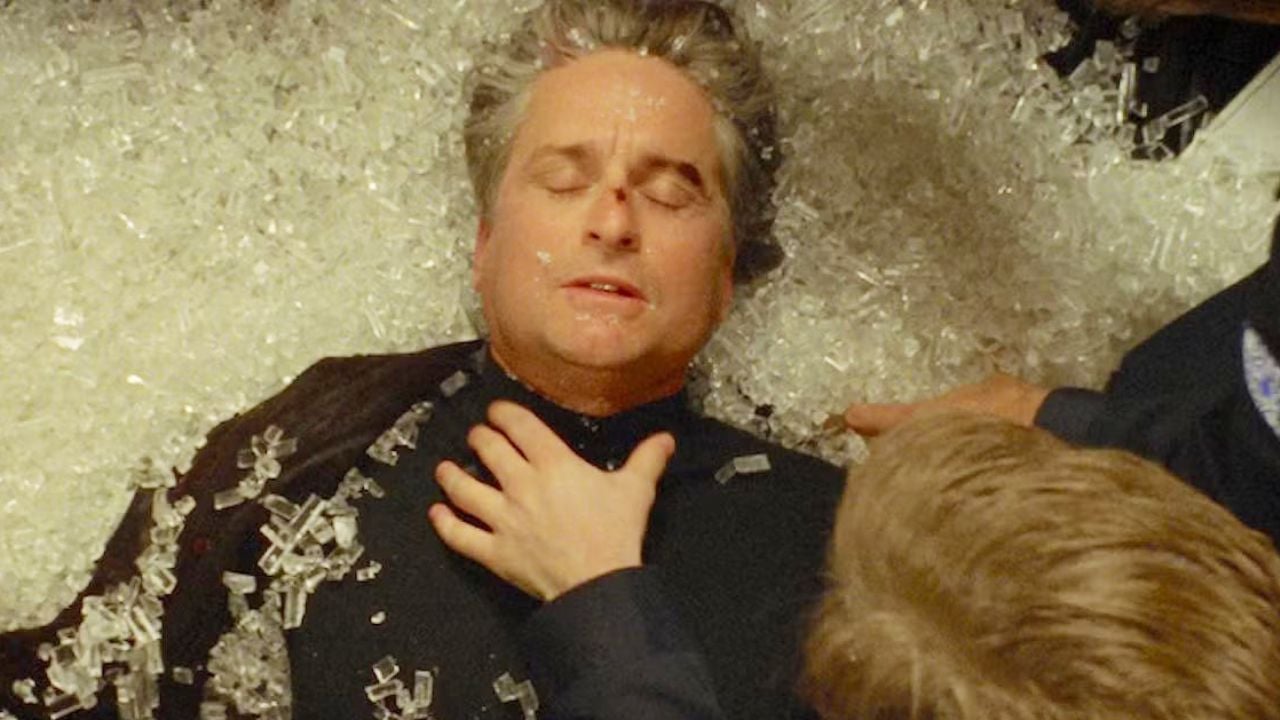In ‘Miles Davis, The Autobiography’, the jazz genius, who passed away in 1991, recounts his quarrels with Charlie Parker and Wynton Marsalis, confesses to having beaten women, reveals hell about drugs and, above all, puts the essentials that every musician should have
No biographer could do better than Miles Davis himself for his story when he told it to the poet, journalist and professor Quincy Troupe since 1985. They would be much tougher with Hurricane Betty Davis cheating on Miles with Jimi Hendrix (wow!), And a lot. more difficult to record Kind of blue, the jazz album reported as the best-selling in history that the trumpeter downplays. But this is a small deficiency compared to so many lessons of shock, ecstasy, tension, moat, psychotherapy, fury, violence, laughter, hatred, trauma, racism and jazz revealed not by teaching, but by experience. Miles Davis is simply not complete because, revealing himself so impetuously, it is clear that he would not fit into 543 pages. Not even 1 million.
Quincy Troupe is now 82 and the fact that he is black weighed heavily when Miles decided to open his soul room to someone. “Miles and I are from the same region. We grew up eating the same kind of food, we love music, art, fashion clothes, basketball, football and boxing. We speak the same language and have similar worldviews. “, wrote the author in the afterword, without hiding the reflected effect on the seduction of a subject who hated only one species more than music critics in general: white music critics. Miles’ speeches are oral, with no editing adjustments or literary research. Everything. in the edition of Miles Davis, the Autobiography, which Belas Letras is publishing in Brazil, Miles talks all the time, with all the bad words that this implies. “If we had cleaned up the language of the book, Miles’ voice wouldn’t have sounded so authentic,” wrote Troupe.
The son of dentist Miles Dewey Davis II, born on May 26, 1926 in a town on the Mississippi River called Alton, Miles III came from a wealthy landowning family. His father paid for his studies and supported his musical choice, but the fact that Miles had neither a father nor a grandfather working on the southern cotton plantations did not prevent his life from being marked by a feeling of hatred towards hatred. that whites felt towards blacks. . A shot that bounces and hits the first target in front of him. “I hate the way whites always try to take credit for something ‘they’ later discover … After bebop became a rage, white music critics tried to act as if they found out. – and we – on 52nd Street, “he says, about the jazz language that emerged in the 1940s with Dizzy Gillespie and Charlie Parker. On what led him to drop out of music studies at the Juilliard School in New York, he denounced: “They (the Juilliard School) were white-oriented and racist as fuck … Damn, I could learn more in a single. jam session at Minton’s Club and in two years at Juilliard “.
But Miles also criticized his black peers for the comfort of their training based on many feelings and few studies. Only pianist Bud Powell, he says, could read sheet music and play all kinds of music. The others, people like Charlie ‘Bird’ Parker himself, Lester Young, Thelonious Monk, Max Roach and many others knew nothing of music theory. Miles would go crazy: “Knowledge is freedom and ignorance is slavery. And I couldn’t believe how someone who could be so close to freedom couldn’t make use of it.” Plus, “It’s like there’s a ghetto mentality that says they shouldn’t do certain things because those things are reserved for whites.”
In one of the last lectures he still had the patience to attend at Juilliard, on the history of music, Miles saw a white teacher say that “blacks played the blues because they were poor and had to pick cotton.” Therefore, they were sad and all that remained was to sound their laments (impressive how this story is taught to this day all over the world). Miles raised his hand and said all at once: “I’m from East St. Louis, my dad is rich and I play the blues. My dad never picked cotton and I didn’t wake up one sad morning and started playing. the blues. ” . He’s deeper than that. “He So he describes the teacher as something impossible to reproduce in a newspaper and concludes:” He was the kind of shit that happened at Juilliard. After a while, I got tired. “
Miles twitched at the big smile that Dizzy Gillespie and Louis Armstrong gave the audience. That, for him, was circus, disrespect for blacks, submission, charm, stupidity. “As much as I love Dizzy and love Satchmo, I’ve always hated the way they laughed at the audience. I know why they did it – to make money and because they were artists as well as trumpet players. And they had families to feed …” And guess who’s to blame ?: “I wasn’t going to do it just so that a racist white son of a bitch who didn’t know how to play could write nice things about me.” Obviously the critics. Those were never forgiven: “The guy who wrote that shit downloadbeat he probably never played an instrument, “he says, of a 1945 review of the album Charlie Parker’s reboppers. Miles, 19, had been invited by Supreme Charlie Parker to join the giants. One critic later wrote that Miles had only copied, and mistakenly, things that had previously been interpreted by Dizzy Gillespie. “Maybe that’s where my resentment towards music critics began, when they threw me down, in the jar, at a time when I was still very young and had a lot to learn.”
But what Miles says about the music is delightful. Attention trumpeters who love vibrati: an unforgettable lesson took place the day Miles’ teacher, Mr. Buchanan, asked the band to stop playing a solo: “Stop waving so many notes, boy. You will tremble a lot as you get older. Just play dry and develop your style. You have a talent for being a unique trumpet player.” Beware of pianists playing trumpeters who interfere during their solo. Miles criticizes none other than Thelonious Monk here for teaching something: “A trumpeter needs a kitchen to play well. You have to have a strong rhythm and most of the time it wasn’t Monk’s. So I just told him not to play along with me … “For musicians who like to wow people with agility and cascading notes, here’s Miles Davis’ advice:” I’ve never enjoyed playing a lot of scales and things like that. I’ve always tried to play the most important notes. chord, break it apart. I’ve heard all those musicians play all those scales and notes and nothing memorable. ” What about this dialogue between Miles and bassist Charles Mingus ?: “Mingus, you’re so lazy, man, you can’t even modulate that p … Just hit the chord and bam! Which is nice sometimes, you know, but no all the time. ” “Miles, play this shit the way I wrote it.” Delightful.
Miles makes us think of Jimi Hendrix in a new way. And this is perhaps the only negative critical thinking founded on Hendrix. For him the guitarist did not reach the young blacks of his time, he did not reach them like the old blues and funk guitarists, and he did nothing to change him: “As much as he was a great musician and as much as I loved his music, very few Black young men had heard of him. Black young men listened to Sly Stone, James Brown, Aretha Franklin and Motown. After playing in many white rock houses, I started wondering why I did not try to bring my music to young black people “.
There are still all the musical revolutions, the stories and the many disagreements with Dizzy, Bird (who has almost stuck a glass bottle in the neck) and the purist Wynton Marsalis, a disaffection that becomes the target for more than two pages of their abuse . There are trips, Brazil being one of his favorite countries for reasons not always noble, and meetings with people of pop music (his greatest idol was Prince). But the advance of drugs in his life is shocking and produces some of the worst pages in the book, perhaps only less disturbing than the stories of some of his relationships with women, many women, sometimes women at the same time, and the way he Miles Davis refers to them. Impossible not to feel sad when we read something like this coming from the same man who played Round midnight like this: “If you let too much with a know-it-all and competitive girl, she’ll keep pouting at you, teasing you more and more. Then you’ll get pissed off and maybe hit her. situation with women very annoying and ended up running into some “. It’s all there, the worst and the best of Miles, which is why there won’t be a more honest and ruthless autobiography.
Source: Terra
Emily Jhon is a product and service reviewer at Gossipify, known for her honest evaluations and thorough analysis. With a background in marketing and consumer research, she offers valuable insights to readers. She has been writing for Gossipify for several years and has a degree in Marketing and Consumer Research from the University of Oxford.



![Everything for pre -light: What awaits you in the 23 Episode of Wednesday on July 16, 2025 [SPOILERS] Everything for pre -light: What awaits you in the 23 Episode of Wednesday on July 16, 2025 [SPOILERS]](https://fr.web.img2.acsta.net/img/0e/be/0ebe245c885086964e20791398a65cb8.jpg)



